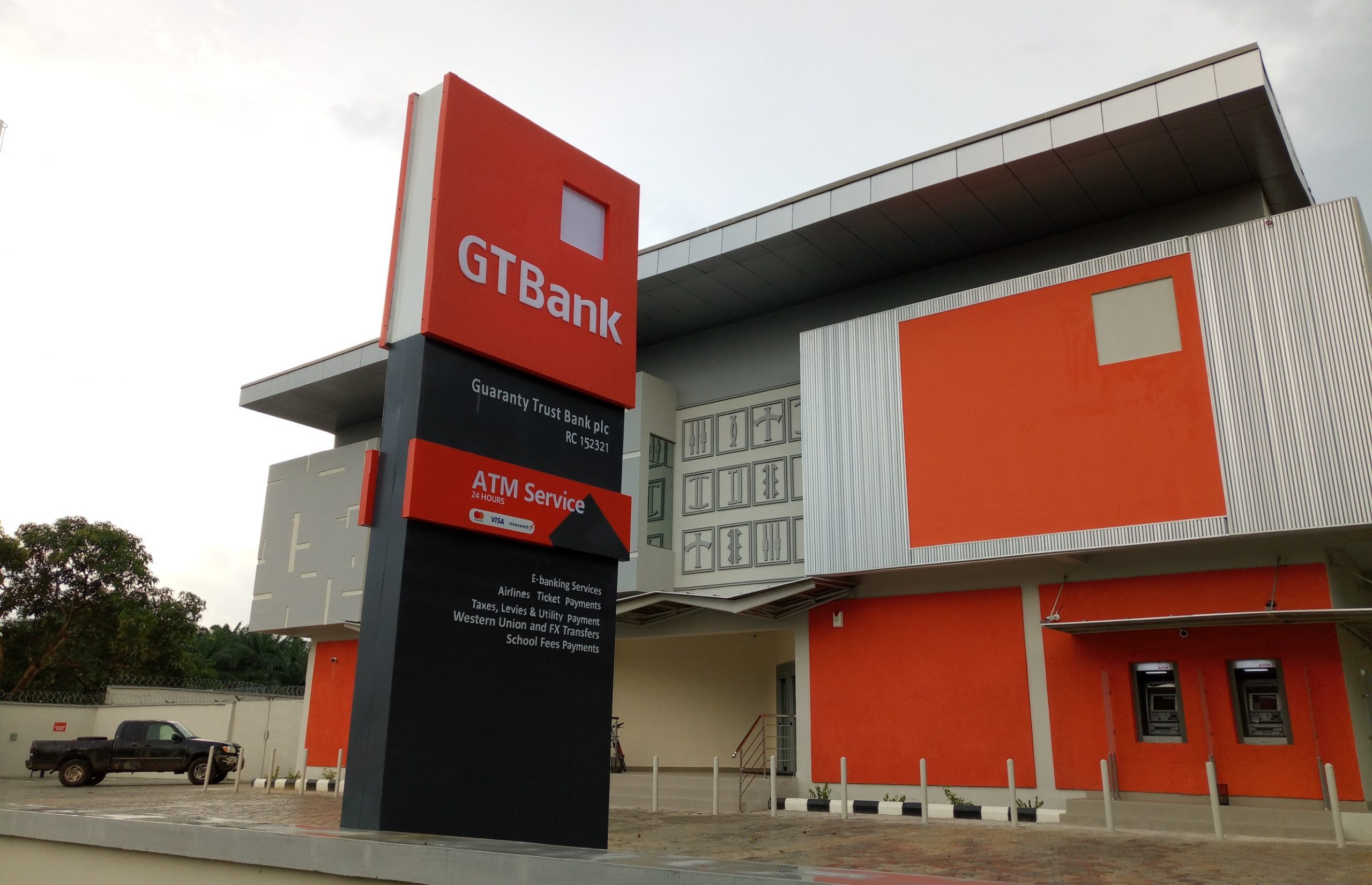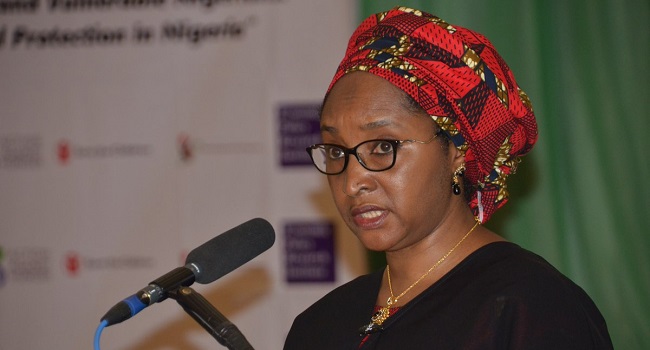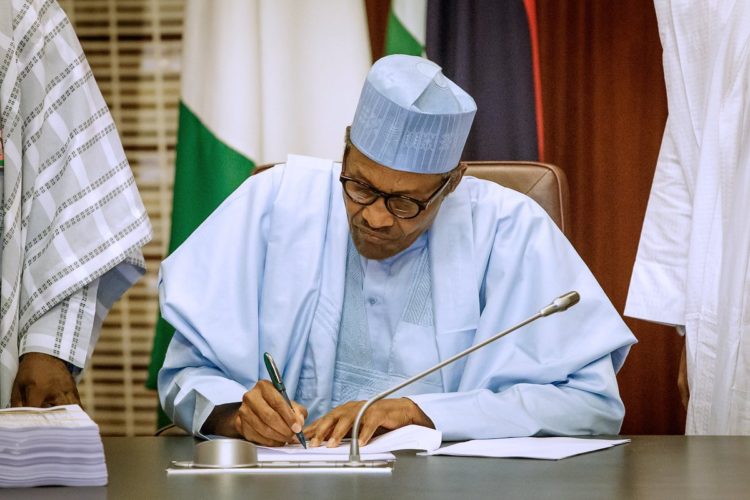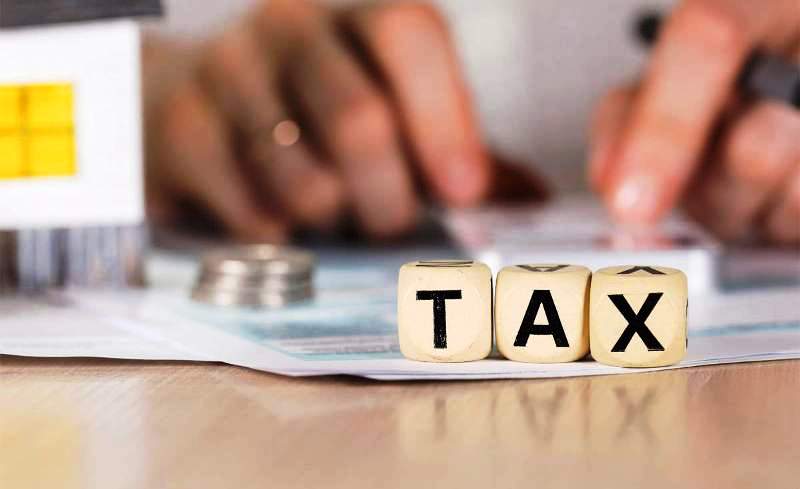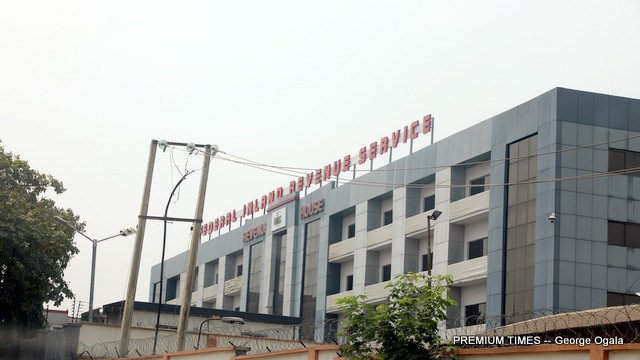The Federal Government said on Friday that it was not planning to introduce any new taxes in 2021, but is making efforts to reduce the tax burden on the Nigerian people in view of the current economic situation occasioned by the COVID-19 pandemic and the fall in the prices of crude oil in the international market.
Minister of Finance, Zainab Ahmed who dropped the hint at a public hearing on the 2020 finance bill currently before the National Assembly organsied by the House of Representatives Committee on Finance also said the bill will make comprehensive reforms in the nation’s tax laws which are aimed at exempting small companies from paying company income tax.
The Finance Bill is expected to pave way for the government to generate revenue to fund the 2021 budget.
The Minister spoke just as the Speaker of the House of Representatives, Hon. Femi Gbajabiamila assured of a quick passage of the bill which he said was critical to the success of the 2021 budget, as it made provisions to support the recovery of the Nigerian economy from the impact of the COVID-19 pandemic.
The Minister said further that the major reason behind the bill was to address issues that were lacking in the 2019 Finance Bill as well as deepen the innovations, adding that the 2020 proposal dealt largely with taxation and tax administration, adding that about 1740 persons representing various professional bodies, academics, International Development partners, civil society organisations, the private sector as well as key Federal Ministries, Departments and Agencies took part in the process of drafting the bill.
She also said that the draft bill was subjected to serious debate before the Federal Executive Council and to the National Economic Council before it was transmitted to the National Assembly.
According to her, the principle that guided the finance bill is need to adopt critical counter-cyclical fiscal policy because we need to be able to adequately respond to economic challenges that is occasioned by the Covid-19 pandemic and the crash in crude oil prices.
She stressed that “We also need to defer tax rate increases to the domestic economic sufficiently recover and reduce compliance burden on tax payers in line with the ease of doing business reforms
“The second principle is the need to reform fiscal incentives policies to help reduce proliferation of fiscal incentives by carefully assessing cost vs benefit of tax incentives and prioritize job creation, growth and incentives”.
She said further that “the government also need closer coordination of monetary, trade and fiscal, adding that this is necessary so that government will be able to align existing tax incentives for lending to agriculture with the recent CBN moratorium and interest rate reduction for agriculture and real sector loans, reform the stamp duty level on banking transaction and make provisions that will help harness funds in form of unclaimed dividends and an unclaimed bank balance that has been sitting idle”.
Ahmed stressed that when passed into law, the bill is expected to promote fiscal equity by removing double taxation on companies during commencement and cessation of business, simplify the basis for calculating minimum tax, and exempt profits that had been taxed from further taxation in the form of excess dividends.
The law she said aimed to align domestic tax laws with global best practices by introducing significant economic presence rules for taxation of non-resident companies, while also introducing tax incentives for infrastructure and capital market as well as support small business through tax exemption of small businesses from company income tax and reduction in VAT compliance burden for small companies.
The law will also increase revenue for the government as it supports the increase of VAT from 5 to 7.5 percent and will also introduce legislative backing for banks to charge stamp duties on electronic receipts.
She maintained that “What we don’t have in the finance bill 2020 is an increase in tax. There are no new taxes that are being introduced and there is no increase in taxes. There are also no new incentives that have been introduced in this bill and will introduce tax reform that has been introduced is geared towards supporting financial stimulus while there are also tax measures that are short, focused, and uncontroversial.
“The bill also makes provisions to create a legal framework for the creation of a crisis intervention fund that will address the crisis that may arise in future, while introducing provisions that allow for the recovery of donations made towards the Covid-19 pandemic and other potential crises.”
In his remarks, Gbajabiamila said even though the bill was only transmitted to the House about one week ago, the House was committed to ensuring speedy passage, but not at the expense of thorough examination of the various clauses.
The Speaker said the “the Finance Bill, 2020 seeks to support the implementation of the 2021 Budget by proposing key reforms to specific taxation, customs, excise, fiscal and other laws”, adding that funding the budget to support economic recovery and address other challenges, was the reason the House gave immediate attention to the bill.
He said, “The Finance Bill which we have gathered here to consider and to contribute to, will determine amongst other things, our ability as a nation to fund the 2021 budget, meet the obligations of government and implement policies to build infrastructure, address the problem of insecurity, grow the economy, and provide jobs that pay a living wage and lift families out of poverty.
“It is an important piece of legislation, deserving of thorough consideration, and reasoned debate by the parliament of the people, acting in the best interests of the people.
“We have a responsibility as legislators to meticulously review and examine every aspect of this Bill to ensure that we produce a legislative document that is clear in its objectives, thoughtful in the mandates it imposes, and reflective of the best aspirations of all our citizens.
“It is expected that over the course of this public hearing, citizens will advance ideas and make recommendations that will improve the quality of the legislation and ensure the varied interests and considerations of all Nigerians are taken into view before final enactment into law of this essential legislation.”
Chairman, House Committee on Finance, Hon. James Faleke, said the proposed amendments to 18 tax-related and dividend laws were in line with the Legislative Agenda of the 9th House.
“The 9th House of Representatives in its legislative Agenda clearly identified as a priority to “Conduct a review of all Federal tax laws to encourage investment; to incentivize enterprise; ensure fairness and curb tax avoidance and evasion through the use of ICT in tax collection and administration.
“As encapsulated in the 9th House of Representatives Legislative Agenda, the priority economic strategic goals for the House of Representatives include the creation of an inclusive, thriving and resilient economy for Nigerians, attainment of substantive reduction in the percentage of poor and unemployed Nigerians.”
